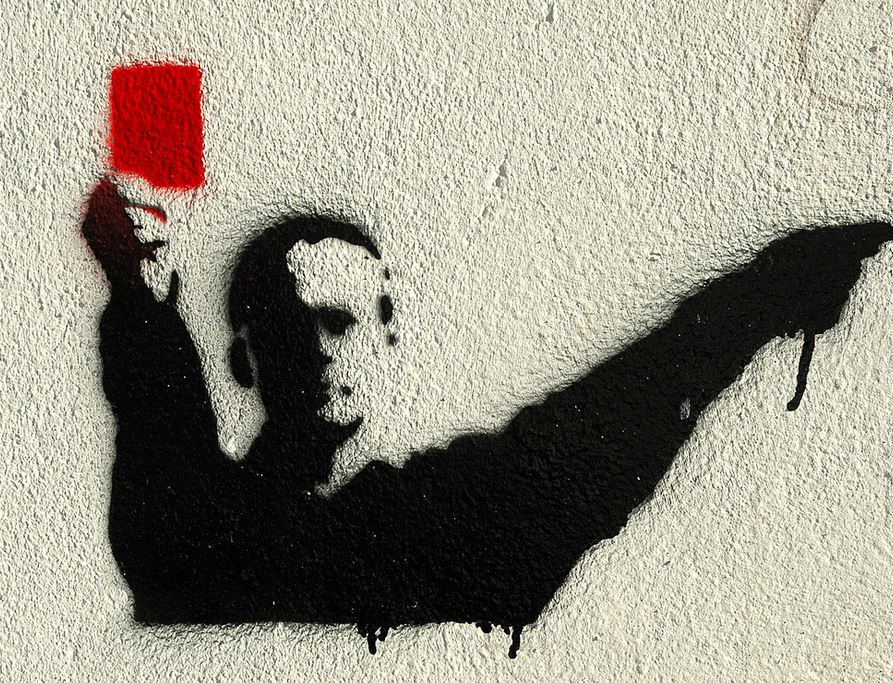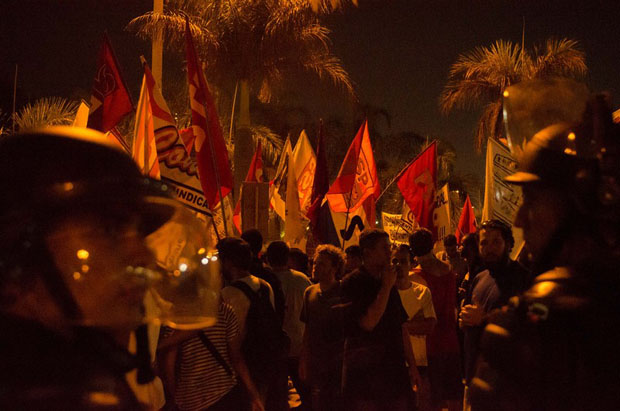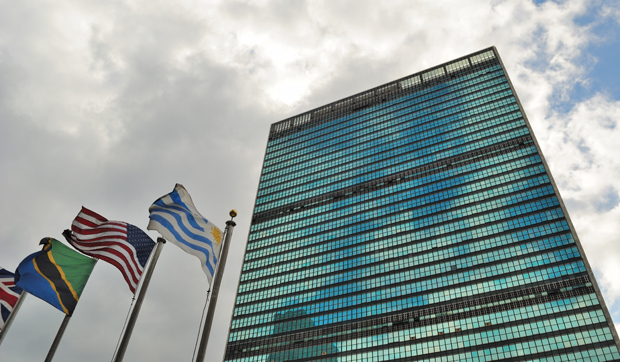Europe after the Berlin Wall: Latest issue
[vc_row][vc_column][vc_custom_heading text=”In the summer issue of Index on Censorship magazine, we include a special report: Brick by brick, freedom 25 years after the fall of the Berlin Wall.”][vc_row_inner][vc_column_inner width=”1/2″][vc_column_text]
As Europe prepares for the anniversary of the wall’s demolition in November, Index on Censorship looks at how the continent has changed. Author Irena Maryniak explores the idea of a new divide that has formed further east. Polish journalist Konstanty Gebert looks at how Poland’s media came out from the underground and lost its voice.
[/vc_column_text][/vc_column_inner][vc_column_inner width=”1/2″][vc_single_image image=”58030″ img_size=”full”][/vc_column_inner][/vc_row_inner][vc_column_text]
Award-winning German writer Regula Venske shows how Germany has tackled its identity issues through crime fiction; and Helen Womack reports from Moscow on the fears of a new Cold War. We also give voice to “Generation Wall” – the young people who have grown up in a free eastern Europe.
When the wall came down in 1989, there were discussions in the Index office about whether our battles were over. Sadly, we all know there was no universal end to censorship on that day. This issue also shares stories of the continuing fight for free expression worldwide, from a scheme to fund investigative journalism in Tanzania to an ambitious crowdsourcing project in Syria.
Also in this issue:
• Dame Janet Suzman looks at censorship of South African theatre on the 20th anniversary of South African democracy
• Jim Al-Khalili shares his thoughts on threats to science research and debate
• Ex BBC World Service boss Richard Sambrook goes head-to-head with Bruno Torturra, from Brazil’s Mídia Ninja, to debate the future of big media
Plus:
• Two new short stories – exclusive to Index – from Costa first novel winner Christie Watson and Turkish novelist Kaya Genç
[/vc_column_text][/vc_column][/vc_row][vc_row][vc_column][vc_custom_heading text=”SPECIAL REPORT: BRICK BY BRICK” css=”.vc_custom_1483610192923{margin-right: 0px !important;margin-left: 0px !important;border-bottom-width: 1px !important;padding-top: 15px !important;padding-bottom: 15px !important;border-bottom-color: #455560 !important;border-bottom-style: solid !important;}”][vc_column_text]
Freedom 25 years after the fall
Editorial: Europe’s past is being rewritten, says Rachael Jolley
Going overground: Konstanty Gebert on Poland’s underground media
Generation Wall: Under 25 year olds speak out on Europe now and then – Tymoteusz Chajdas, Milana Knezevic, Ivett Korosi and Victoria Pavlova
Enemies of the people: Matthias Biskupek on book censorship in East Germany
Judging Prague’s democratic difficulties: Jiri Pehe explores the quality of Czech democracy
Stripsearch cartoon: Martin Rowson conveys swapping communism for capitalism
The new divide: Thomas Rothschild believes the world didn’t get better after the fall
The other wall: Irena Maryniak on why Europe’s dividing line shifted
Mystery of regional identity: Regula Venske looks at how crime fiction shaped Germany
Empire line: Helen Womack on Russia’s retreating ideology
[/vc_column_text][/vc_column][/vc_row][vc_row][vc_column][vc_custom_heading text=”IN FOCUS” css=”.vc_custom_1481731813613{margin-right: 0px !important;margin-left: 0px !important;border-bottom-width: 1px !important;padding-top: 15px !important;padding-bottom: 15px !important;border-bottom-color: #455560 !important;border-bottom-style: solid !important;}”][vc_column_text]
Bordering isolation: Kate Maltby explores attitudes to minorities in Turkey
Pakistan at a crossroads: Haroon Ullah looks the power of landlords and their influence on voting
Spying on the censors: Roger Highfield on how metadata could expose regimes
Going in deep: The risks facing Tanzania’s journalists, by Jess McCabe and Erick Kabendera
Open books: Susanne Metz on the vital role of libraries in exchanging ideas
Legal divisions: Dominique Mondoloni compares French and English libel laws
Cape crusader: Natasha Joseph interviews retiring South African politician Ben Turok
Syria’s inside track: Vicky Baker looks at crowdsourcing news in conflict
Mapped out: Guyana’s indigenous mapmakers, by Vicky Baker
When one door closes: Kaya Genç looks at whether Turkey should turns east or west
LA story: Ed Fuentes on lifting the graffiti ban in Los Angeles
Secrets and lives: Tarashea Nesbit tells the story of the wives at Los Alamos
Marching on: Nicole Mezzasalma looks at Brazil’s unprecedented protests
History revision: Saurav Datta on why India’s colonial laws haven’t changed
Brain unboxed: Rachael Jolley interviews scientist Jim Al-Khalili
Future imperfect: Jason Daponte explores online copying, control and protection
Degree of inequality: Jemimah Steinfeld reveals how China’s education system discriminates against women
Head to head: Richard Sambrook and Bruno Torturra debate whether big or small media have the control
On the ground in Argentina: Adrian Bono on the president’s love of one-way communication
On the ground in South Korea: Sybil Jones shares first-hand knowledge and looks at how news slips out
[/vc_column_text][/vc_column][/vc_row][vc_row][vc_column][vc_custom_heading text=”CULTURE” css=”.vc_custom_1481731777861{margin-right: 0px !important;margin-left: 0px !important;border-bottom-width: 1px !important;padding-top: 15px !important;padding-bottom: 15px !important;border-bottom-color: #455560 !important;border-bottom-style: solid !important;}”][vc_column_text]
Stage directions in South Africa: Actor and director Janet Suzman on post-apartheid theatre
Big men, big decisions: Christie Watson’s new short story, based in Nigeria
“The exiled poet, free once more”: Robert Chandler translates Lev Ozerov’s poetry
Ghost of Turkey’s past: Kaya Genç’s exclusive short story on Turkish feminist Halide Edip Adivar
[/vc_column_text][/vc_column][/vc_row][vc_row][vc_column][vc_custom_heading text=”COLUMNS” css=”.vc_custom_1481732124093{margin-right: 0px !important;margin-left: 0px !important;border-bottom-width: 1px !important;padding-top: 15px !important;padding-bottom: 15px !important;border-bottom-color: #455560 !important;border-bottom-style: solid !important;}”][vc_column_text]
Global view: Index’s new CEO Jodie Ginsberg on fighting censorship on and offline
Index around the world: Alice Kirkland’s update on news from Index’s global work
[/vc_column_text][/vc_column][/vc_row][vc_row][vc_column][vc_custom_heading text=”END NOTE” css=”.vc_custom_1481880278935{margin-right: 0px !important;margin-left: 0px !important;border-bottom-width: 1px !important;padding-top: 15px !important;padding-bottom: 15px !important;border-bottom-color: #455560 !important;border-bottom-style: solid !important;}”][vc_column_text]
Campus clampdown: Taylor Walker looks at free speech zones at US universities
[/vc_column_text][/vc_column][/vc_row][vc_row][vc_column][vc_custom_heading text=”SUBSCRIBE” css=”.vc_custom_1481736449684{margin-right: 0px !important;margin-left: 0px !important;border-bottom-width: 1px !important;padding-bottom: 15px !important;border-bottom-color: #455560 !important;border-bottom-style: solid !important;}”][vc_column_text]Index on Censorship magazine was started in 1972 and remains the only global magazine dedicated to free expression. Past contributors include Samuel Beckett, Gabriel García Marquéz, Nadine Gordimer, Arthur Miller, Salman Rushdie, Margaret Atwood, and many more.[/vc_column_text][vc_row_inner][vc_column_inner width=”1/2″][vc_single_image image=”76572″ img_size=”full”][/vc_column_inner][vc_column_inner width=”1/2″][vc_column_text]In print or online. Order a print edition here or take out a digital subscription via Exact Editions.
Copies are also available at the BFI, the Serpentine Gallery, MagCulture, (London), News from Nowhere (Liverpool), Home (Manchester), Calton Books (Glasgow) and on Amazon. Each magazine sale helps Index on Censorship continue its fight for free expression worldwide.
![]() SUBSCRIBE NOW[/vc_column_text][/vc_column_inner][/vc_row_inner][/vc_column][/vc_row]
SUBSCRIBE NOW[/vc_column_text][/vc_column_inner][/vc_row_inner][/vc_column][/vc_row]



